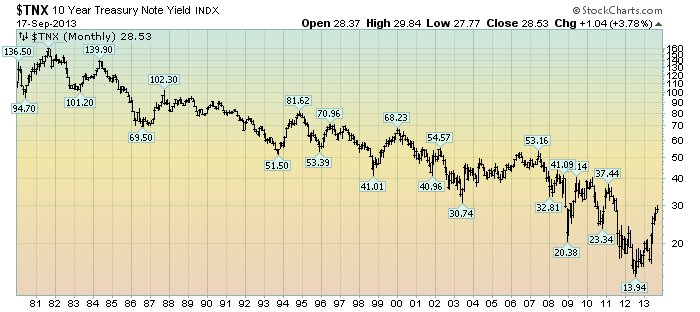The last two weeks have seen a variety of articles that discuss the five-year anniversary of the Financial Crisis of 2008, of which many date to the bankruptcy filing of Lehman Brothers on September 15, 2008. One frequent topic is whether today's financial system has been sufficiently "strengthened" since September of 2008, so that subsequent "financial crises" can be avoided.
Many seem to believe that today's financial system has been sufficiently "strengthened" and safeguards have been enacted to avoid the hazards encountered during the Financial Crisis, such as overleveraged financial institutions, "aggressive" lending practices, weak regulation and enforcement, etc. In order to prove that the financial system is in much better shape now - and able to avoid future problems - various statistics are cited, including increased bank capital, strong bank earnings, lower bank leverage ratios, and increased supervision and regulation, including provisions of the Dodd-Frank Act.
However, the vast majority of the discussions of whether the financial system of today is "strong" and whether it will avoid future upheavals seems to be lacking recognition of various problematical areas.
My analyses indicate that the financial system is rife with "problems areas"; a few include:
"Too Big To Fail" (TBTF) and other "Moral Hazard" Issues:
Over the last few years, there has been much mention of "Too Big To Fail"; however, there appears to have been little done to solve the problem. In fact, "Too Big To Fail" issues seem to have grown over the last few years. I consider "Too Big To Fail" to be a subset of Moral Hazard, which overall remains at wildly elevated levels.
Quantitative Easing Issues:
I have written extensively about Quantitative Easing (QE) as I believe many of its aspects lack recognition and understanding. My analyses indicate that QE (also referred to as “Large-Scale Asset Purchases” (LSAPs)) in general carries an array of risks, detrimental impacts, and unintended consequences. It has complex impacts on the economy and markets.
One of the many problems inherent in QE is that of exit issues. As I wrote in the December 17, 2010 post ("Quantitative Easing Exit Issues") :
While it is possible that the eventual exit from QE will go smoothly, I think that the possibility of adversity in doing so is high. There is much that can go wrong in “a big way” on numerous fronts – especially if an exit is done under exigent circumstances. As well, there are many conflicting incentives inherent in Quantitative Easing, which further complicates the “exit” issue.
Asset bubbles:
No discussion of financial system stability can be complete without consideration of whether asset bubbles exist - and if so, how they will be "resolved." Almost by definition, asset bubbles breed (future) financial instability. My analyses indicate that there are various immensely large asset bubbles, a subject of which I have extensively written. While all of these asset bubbles are wildly pernicious and will have profound adverse future implications, hazards presented by the bond market bubble are especially notable.
No discussion of financial system stability can be complete without consideration of whether asset bubbles exist - and if so, how they will be "resolved." Almost by definition, asset bubbles breed (future) financial instability. My analyses indicate that there are various immensely large asset bubbles, a subject of which I have extensively written. While all of these asset bubbles are wildly pernicious and will have profound adverse future implications, hazards presented by the bond market bubble are especially notable.
The Threat Of Rising Interest Rates:
I've most recently discussed this issue in the post of August 22, titled "The Impact Of Rising Interest Rates." As I mention in this post, "...my analyses indicate that interest rates can rise to levels much higher than generally expected." The threat of rising interest rates is inherent in the deflating and/or bursting of the bond bubble. A substantial rise in interest rates will have wide-ranging, pernicious impacts on the financial system.
For reference, here is a monthly chart of the 10-Year Treasury Yield from 1980, on a LOG basis:
(click on chart to enlarge image)(chart courtesy of StockCharts.com; chart creation and annotation by the author)
Conclusion:
The level of peril inherent in the financial system is outsized from a long-term historical standpoint. I believe that the financial system will have substantial "upheaval" via a future "crash."
_____
The Special Note summarizes my overall thoughts about our economic situation
SPX at 1704.76 as this post is written

No comments:
Post a Comment